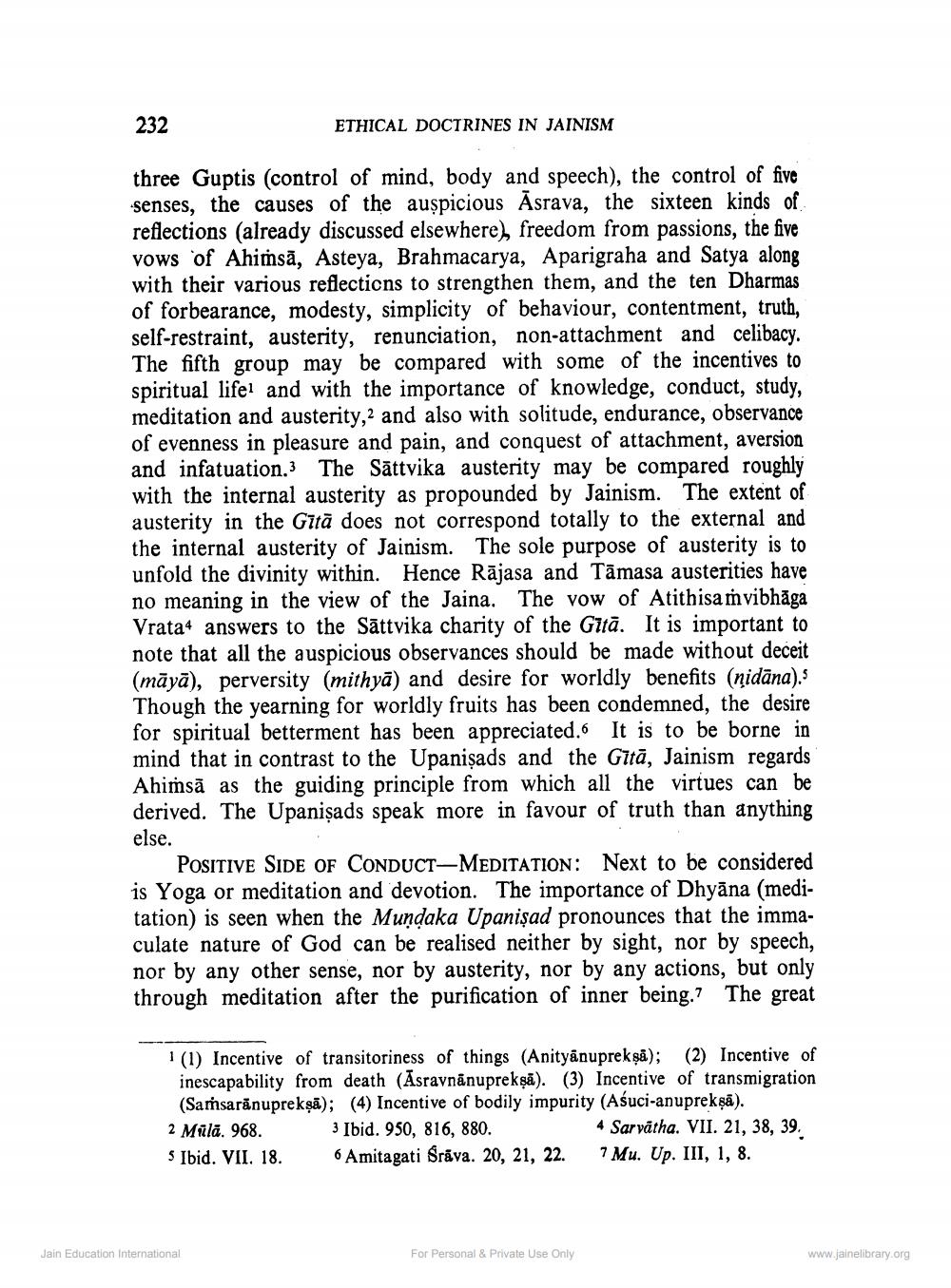________________
232
ETHICAL DOCTRINES IN JAINISM
three Guptis (control of mind, body and speech), the control of five senses, the causes of the auspicious Asrava, the sixteen kinds of reflections (already discussed elsewhere, freedom from passions, the five vows of Ahimsā, Asteya, Brahmacarya, Aparigraha and Satya along with their various reflections to strengthen them, and the ten Dharmas of forbearance, modesty, simplicity of behaviour, contentment, truth, self-restraint, austerity, renunciation, non-attachment and celibacy. The fifth group may be compared with some of the incentives to spiritual lifel and with the importance of knowledge, conduct, study, meditation and austerity, and also with solitude, endurance, observance of evenness in pleasure and pain, and conquest of attachment, aversion and infatuation. The Sättvika austerity may be compared roughly with the internal austerity as propounded by Jainism. The extent of austerity in the Gitā does not correspond totally to the external and the internal austerity of Jainism. The sole purpose of austerity is to unfold the divinity within. Hence Rājasa and Tāmasa austerities have no meaning in the view of the Jaina. The vow of Atithisam vibhāga Vrata4 answers to the Sāttvika charity of the Gitā. It is important to note that all the auspicious observances should be made without deceit (māyā), perversity (mithyā) and desire for worldly benefits (nidāna). Though the yearning for worldly fruits has been condemned, the desire for spiritual betterment has been appreciated. It is to be borne in mind that in contrast to the Upanişads and the Gitā, Jainism regards Ahimsă as the guiding principle from which all the virtues can be derived. The Upanişads speak more in favour of truth than anything
else.
POSITIVE SIDE OF CONDUCT-MEDITATION: Next to be considered is Yoga or meditation and devotion. The importance of Dhyāna (meditation) is seen when the Mundaka Upanişad pronounces that the immaculate nature of God can be realised neither by sight, nor by speech, nor by any other sense, nor by austerity, nor by any actions, but only through meditation after the purification of inner being. The great
1(1) Incentive of transitoriness of things (Anityānuprekņā); (2) Incentive of inescapability from death (Asravnānuprekşā). (3) Incentive of transmigration
(Saṁsarānuprekşā); (4) Incentive of bodily impurity (Asuci-anuprekņā). 2 Milā. 968. 3 Ibid. 950, 816, 880.
4 Sarvātha. VII. 21, 38, 39. 5 Ibid. VII. 18. 6 Amitagati Sráva. 20, 21, 22. 7 Mu. Up. III, 1, 8.
Sarvard
Jain Education International
For Personal & Private Use Only
www.jainelibrary.org




